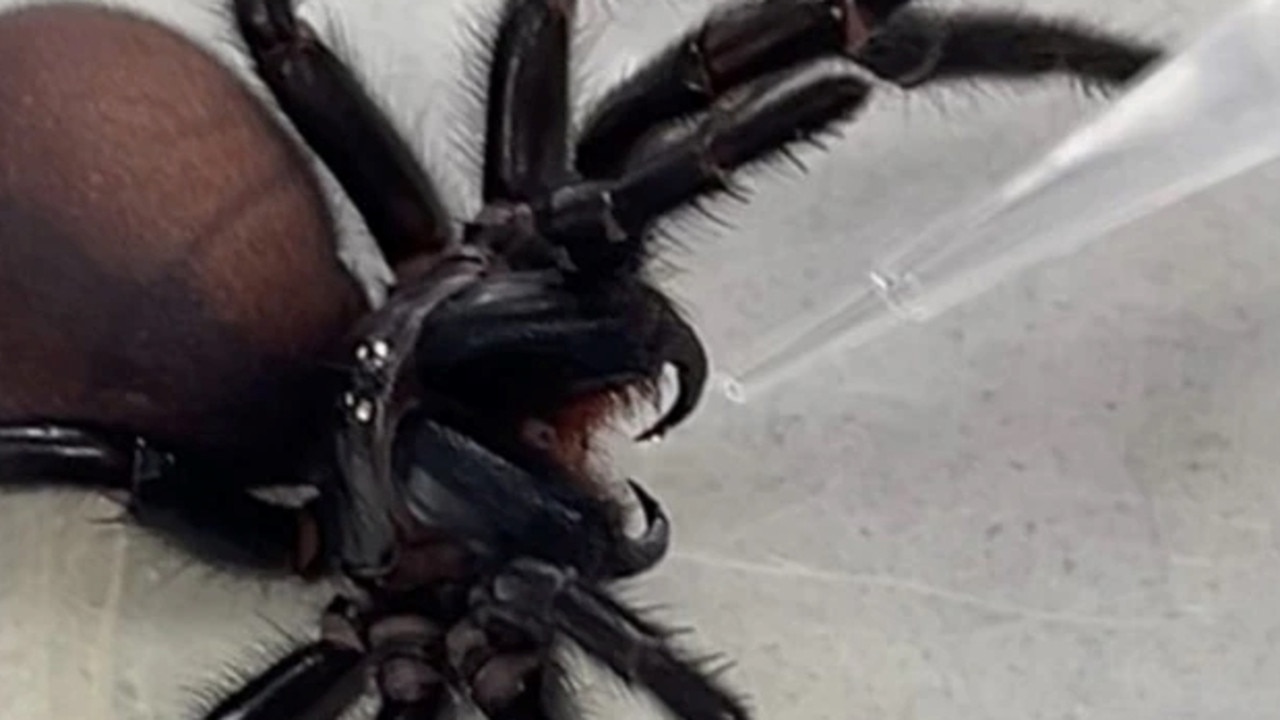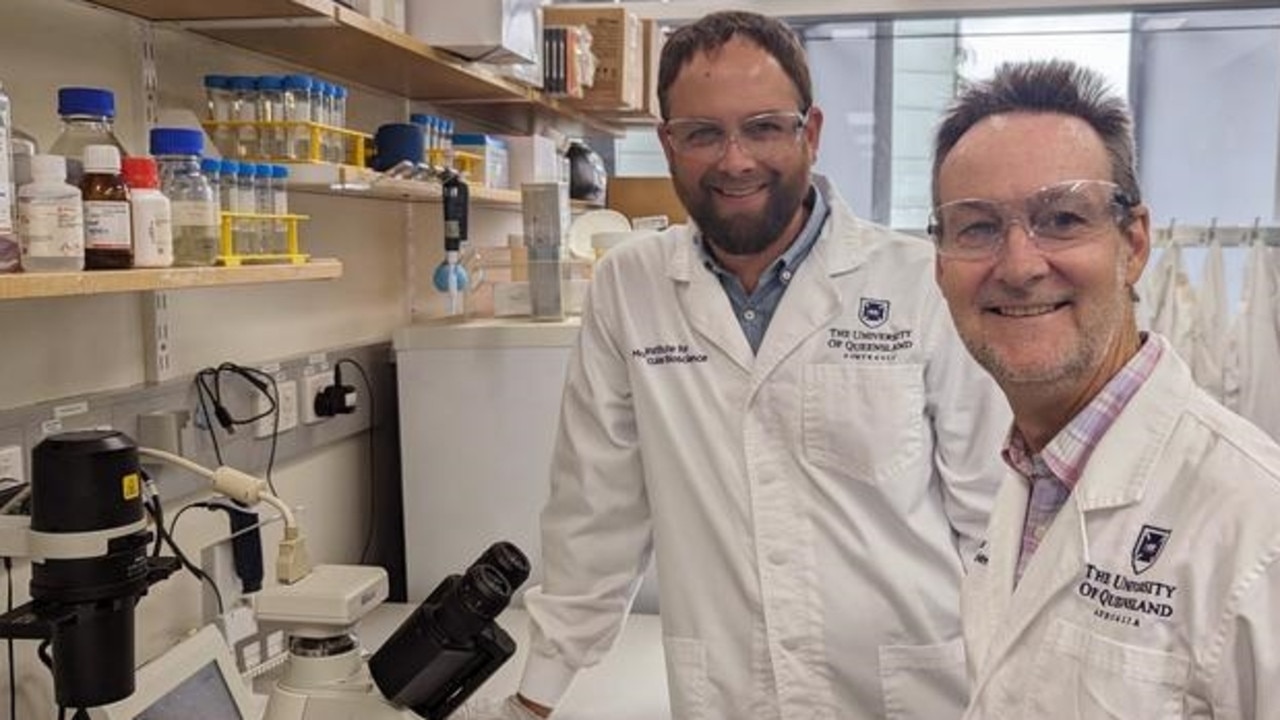World-first Aussie research using funnel-web venom molecule to treat heart attacks
The deadly venom of one of Australia’s most feared creepy-crawly critters has inspired a surprising new project.
World-first Australian research is using funnel-web spider venom to protect the heart during heart attacks.
The University of Queensland researchers have on Sunday been granted $17m of government money to run clinical trials.
Project leader Glenn King says the drug, which mimics the venom, has the potential to save thousands of lives each year and “drastically improve” the quality of life for heart attack survivors.
Seven-thousand Australians die of a heart attack each year, and in total 55,000 have an attack annually. Heart attacks are the leading cause of death globally.

The researchers discovered a peptide which protects the heart during a heart, and also improves the viability of a donor heart.
Funnel-webs have the Hi1a peptide as protection from predators, but in humans, the peptide stops heart and brain cells from dying. In this research the spider peptide is synthesised in a lab.
The drug has already been shown effective in treating stroke. On Sunday the Federal Health Minister announced the government was granting $17.8m over five years for development.
“This investment will fast-track development of the world’s first cardioprotective drug, which was inspired by a molecule discovered in the venom of an Australian funnel-web spider,” lead researcher Professor King said.

“This drug has the potential to not only save thousands of lives each year, but also to drastically improve the quality-of-life for heart attack survivors by minimising the injury to their heart.
“This investment from the Government will support a truly Australian innovation and ensure that all of the clinical and economic benefits flow back to Australia,” he said.
The next phases of the research will involve clinical trials with a miniaturised version of Hi1a to develop the first-ever drugs for heart attack and heart transplantation.

Researchers aim to bring in the new treatment within 10 years, and want first responders to carry it as an injection.
Health Minister Mark Butler praised the innovative researchers.
“This research is a world-first and could only have come from our world-class Australian researchers. Based on a molecule in the venom of an Australian funnel-web spider, this could save thousands of lives.
“Heart attacks and cardiovascular disease are our biggest killers. These world-first trials will give hope to thousands of Australians who suffer from a heart attack and heart failure.”

“I’m proud the Albanese Government is supporting Australian researchers to take this ‘moonshot’. It has the potential to save lives and improve quality of life – not only for Australians, but right around the world,” Mr Butler said.
As a person has a stroke, the brain becomes acidic, brain cells die, and brain damage is incurred.
A similar process occurs on the muscles of the heart during a heart attack. The Hi1a peptide blocks a protein which otherwise triggers the cells to die.
The effect of the Hi1a peptide can translate to helping a donated heart sustain itself longer while the organ is detached from a human body.

Drugs based on the peptide have been shown to be effective in stroke patients hours after the onset of a stroke.
The Institute for Molecular Bioscience in Queensland is involved with the project, and Australian bioscience company Infensa will take the drug to market.
Venom from funnel-webs kill humans by keeping their nerves on and firing repeatedly, leading to blood pressure and heart rate issues, hypertension. Without treatment a bite can turn deadly in 15 minutes.
A 2023 study found none of the Border Ranges, Darling Downs, Southern tree-dwelling or Sydney funnel-webs were consistently aggressive against potential predators.
An effective antivenom was developed in the 1980s, but to this day scientists do not have the full picture on how long funnel-webs live in the wild, how much they move around, or how males search for females.
Originally published as World-first Aussie research using funnel-web venom molecule to treat heart attacks



